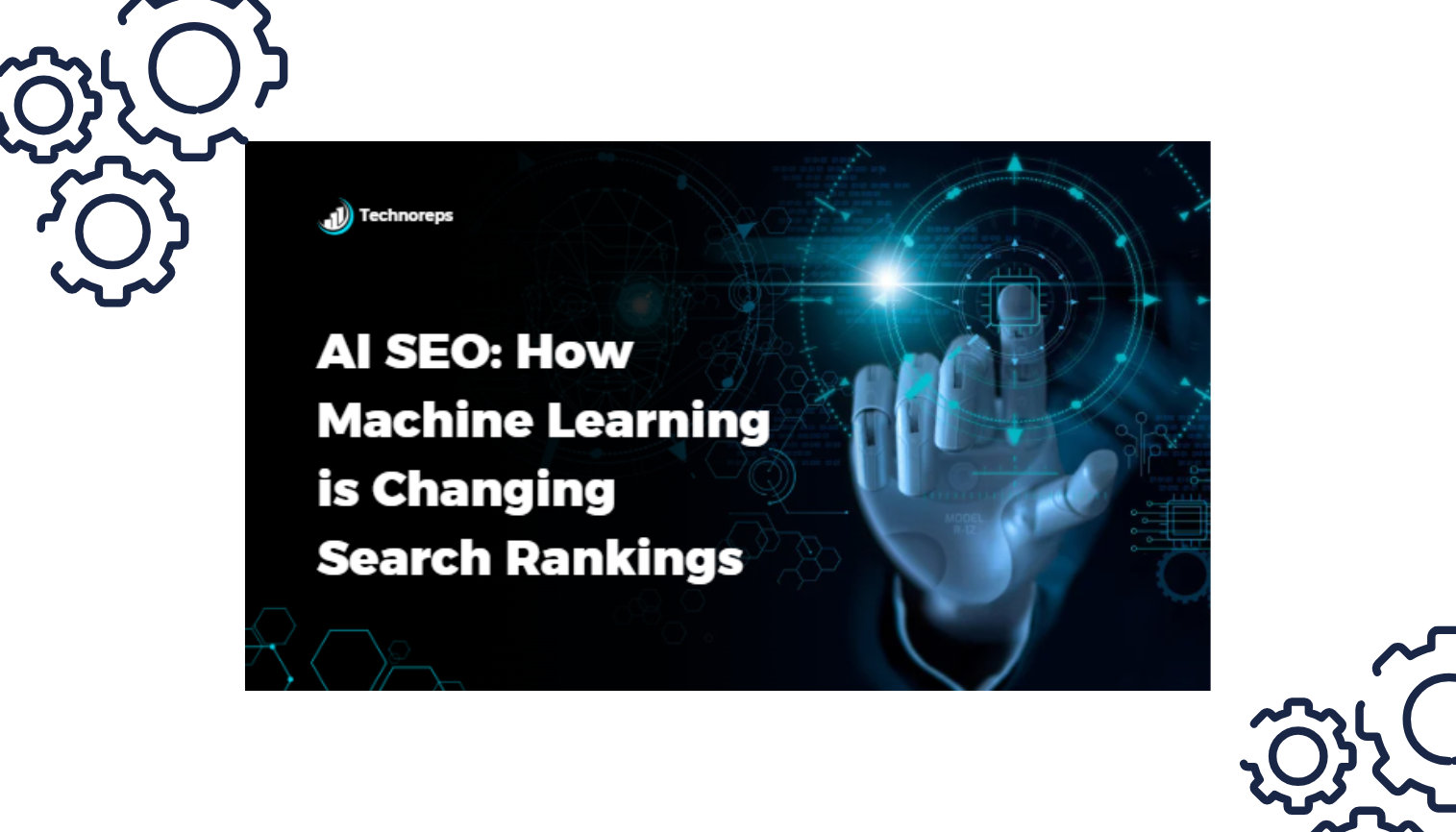Search engine optimization (SEO) is evolving rapidly, thanks to advancements in artificial intelligence (AI) and machine learning. AI-powered SEO helps businesses optimize their digital presence with smarter, more efficient strategies. In this blog, we explore how machine learning is reshaping search rankings and what you can do to stay ahead.
Understanding AI in SEO
Machine learning algorithms analyze vast amounts of data to improve search rankings. Google’s RankBrain and BERT are prime examples of AI-powered systems that refine search results by understanding user intent, context, and content relevance.
How Machine Learning is Transforming Search Rankings

1. Smarter Keyword Research
AI tools like Google Keyword Planner, Ahrefs, and SEMrush analyze search trends and user behavior to suggest high-traffic, low-competition keywords.
Key Strategies:
- Use Long-Tail Keywords: Phrases like “how to create a transformative website” or “best SEO practices for small businesses” help target niche audiences.
- Focus on User Intent: AI distinguishes between informational, transactional, and navigational searches, ensuring your content matches user needs.
2. Content Optimization for AI Algorithms
Quality content remains king, but AI-driven search engines prioritize engaging, well-structured, and intent-driven articles.
Best Practices:
- Engaging Titles: Use attention-grabbing, keyword-optimized titles (e.g., “10 Proven Strategies to Boost Your Digital Presence in 2024”).
- Content Structure:
- H1 for the main title
- H2, H3, H4 for subheadings
- Short paragraphs and bullet points for readability
- Solve Problems: Address pain points like “How to generate leads with SEO in 2024.”
- Optimal Length: Blog posts between 1,000-2,000 words perform best.
3. On-Page SEO & AI Enhancements
AI tools analyze metadata, keyword usage, and user engagement to rank content effectively.
Implementation Tips:
- Optimize Meta Tags:
- Meta Title: 50-60 characters, including primary keywords.
- Meta Description: 120-160 characters with a compelling summary.
- Keyword Placement: Naturally integrate primary and secondary keywords in the first 100 words, headings, and body text.
- Internal & External Links:
- Link to related articles for better engagement.
- Cite authoritative sources to boost credibility.
4. AI-Driven Visual Content Optimization
AI-driven image and video analysis impact rankings, making visual content essential.
SEO-Friendly Visual Strategies:
- Include Images & Videos: Use custom graphics, infographics, and videos.
- Optimize Alt Text: Add descriptive alt text with keywords.
- Compress Images: Tools like TinyPNG improve site speed.
5. Local SEO & AI Enhancements
Local businesses benefit from AI-powered location-based optimizations.
Tips for Local SEO:
- Use Local Keywords: Include location-based keywords like “Houston web development services.”
- Create Localized Content: Example: “Top Digital Marketing Trends for Small Businesses in [Your City].”
6. AI-Assisted Content Planning

AI simplifies content scheduling and optimization by analyzing performance metrics.
Planning Tools:
- Use Content Calendars: Google Sheets, Trello, or Asana for tracking topics and deadlines.
- Post Frequency: Publish 1-2 posts per week for consistency.
7. Performance Tracking with AI
Google Analytics and Google Search Console use AI to measure website performance.
Monitoring Metrics:
- Track Traffic & Engagement: Identify popular blogs and high-performing keywords.
- Adjust Content Strategy: Update underperforming posts with better keywords and insights.
8. AI-Driven Backlink Strategies
Machine learning identifies high-quality backlink opportunities.
Effective Link-Building Tactics:
- Guest Posting: Write articles for industry-related sites linking to your blog.
- Create Shareable Content: Guides, checklists, and infographics encourage backlinks.
9. AI for Lead Generation & CTAs
AI optimizes lead generation through predictive analytics and personalized CTAs.
Lead Generation Techniques:
- Effective CTAs:
- “Contact us for a free consultation!”
- “Download our free guide to digital transformation!”
- Use Lead Magnets: Offer eBooks, free audits, or templates to capture email leads.
Conclusion
AI-powered SEO is revolutionizing how websites rank on search engines. By leveraging machine learning for keyword research, content optimization, and performance tracking, businesses can improve search visibility and attract more organic traffic. Stay ahead by integrating AI-driven strategies into your SEO efforts today!






